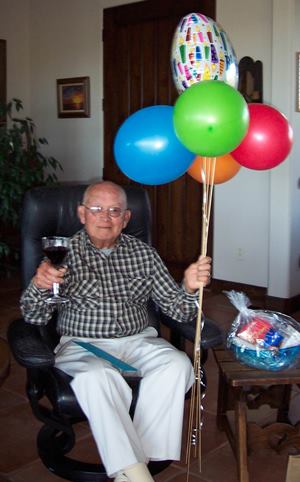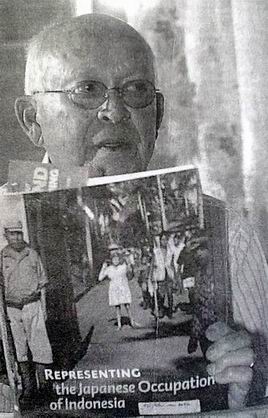Survivors’ Stories
Going to Mother in Banju Biru – Part Two
We learned that mother was hospitalized. She had almost died in a long struggle against typhoid. When mother saw us she said very weakly “Dag Gerard en Piet”. How sweet to hear my mother’s voice! I couldn’t believe how emaciated she was; I had never seen her so thin. Words failed to express the feelings that we experienced. It gave us great joy to tell her that father was still alive. How we enjoyed just being together again.
Piet and I related some of our dreadful camp experiences. Just before the capitulation of Japan my father, Piet and I had been moved to camp Tjitjalenka, where we had to build a railroad for the Japanese. We went through an absolutely horrendous and depressing time and were at the point of despair. Although we had been promised better food, it never came. Lies, all lies: the food was deplorable, the water supply almost non-existent, the heat oppressive and the forced labor on the railroad so difficult that it had almost killed us. We had to work seven days a week, from sunrise to sunset. Had it not been for the bombs dropped on Hiroshima and Nagasaki and the subsequent cessation of war, we would all have perished.
We stayed in Banju Biro for about a week, and even though mother pleaded with us to stay, we felt that we had to return to father to bring him the good news that his wife and daughters were alive. We decided to take Jan with us as a surprise for father. Mother wept, gave us a letter for father and kept pleading, “Be careful, be very careful.”
The political situation in Indonesia was very volatile. On the very day we left Banju Biru the Bersiap broke out in all its fury. We had no idea what awaited us on our return journey and even we three boys were taking a tremendous chance. We were transported by truck to the train station in Ambarawa. Again the trains were overloaded. For some unknown reason all the Europeans were told to move into one train car, creating an uncomfortably small minority of passengers. In the afternoon we arrived at the bustling station Toegoe in Djokja, where we met some Indonesian acquaintances, who had heard that we had all died in the concentration camps. They put us up for the night; how we appreciated their warm hospitality.
Early the following morning we walked to the train station accompanied by a member of our friends’ household. We heard a racket and saw a group of Indonesian young men writing graffiti on a wall; then they threatened us with spears and bamboo sticks, yelling Merdeka (freedom) and Bersiap (change). At that time we didn’t know what those words meant, but they sounded threatening. To our horror we saw more groups of threatening Indonesian youths. Our friend told us to ignore them and just keep on walking. To our relief we arrived at the station without incident. There were many Dutch women and children who, like us, were trying to find family members.
Hundreds of Indonesians were trying to board the train as well. It was almost impossible to get on. We could feel that the day would be very hot, muggy and tiring. Inside the train it had become unbearably hot already; children were starting to cry; the bathroom facilities were inadequate for so many people. We were beginning to feel like genuine refugees. Finally the train left.
by Gerard Mobach Previously published in “Four Years till Tomorrow”
To be continued
Questions? Comments? Please leave them below
Until next time,
Ronny


